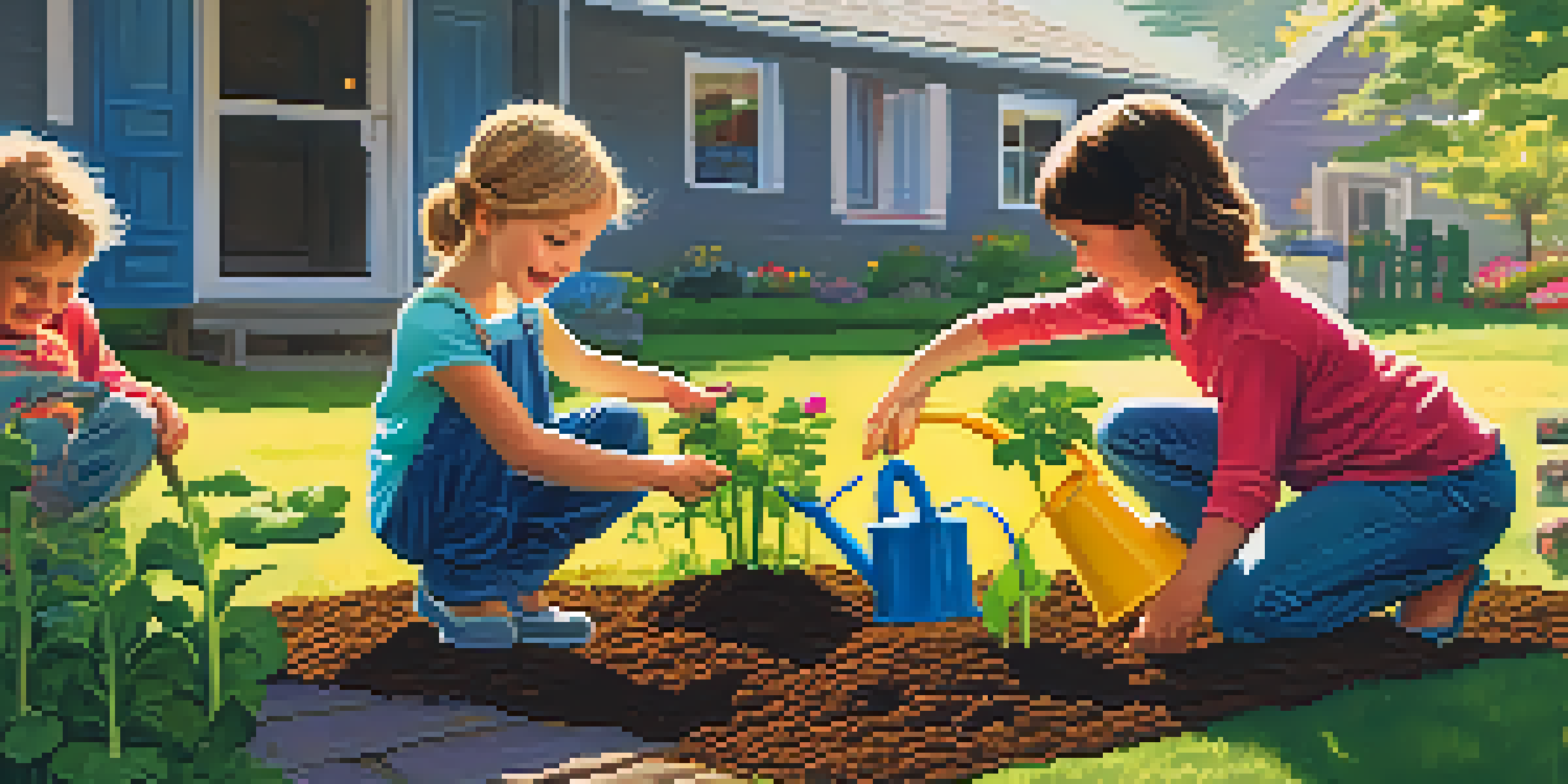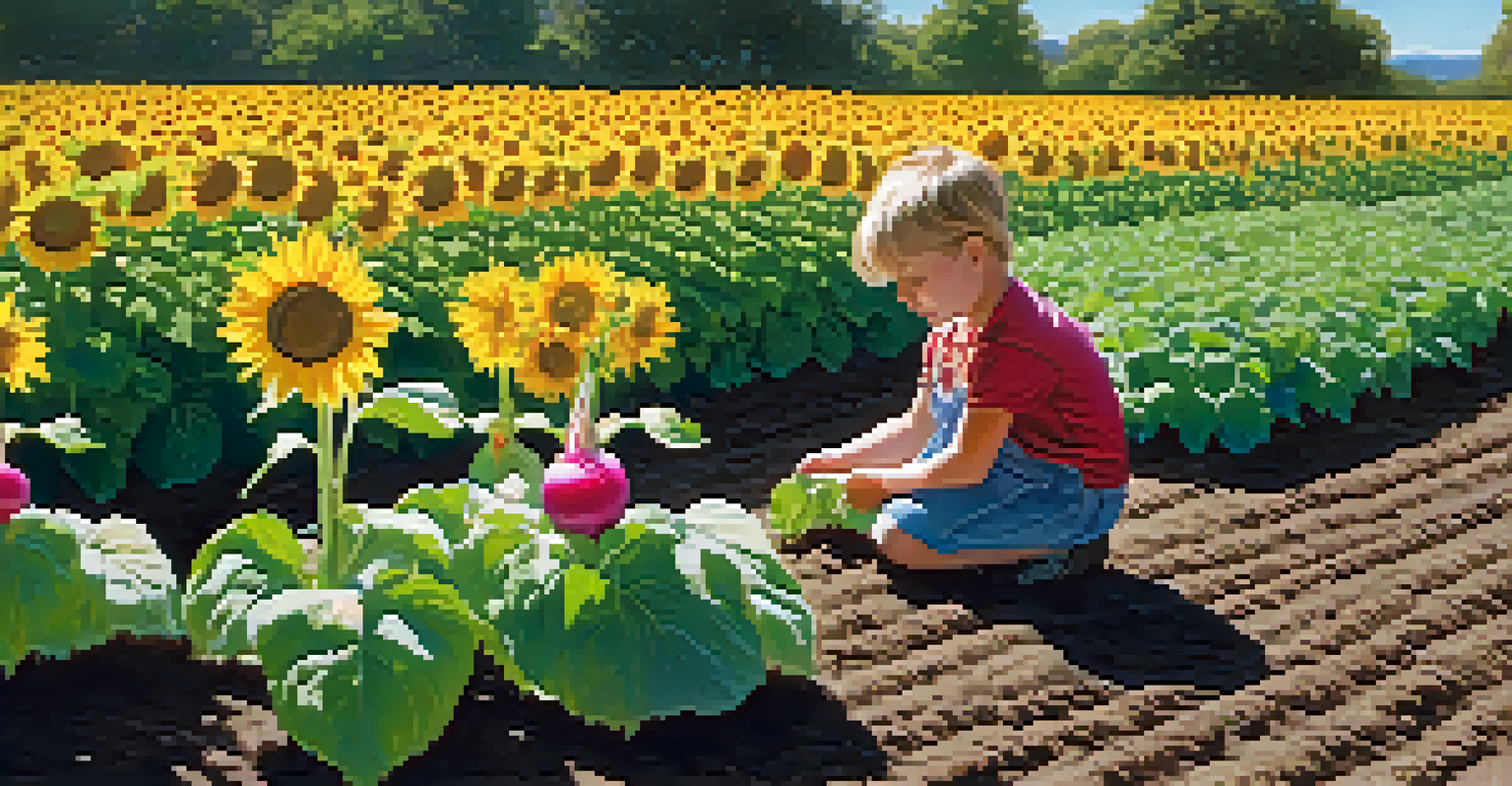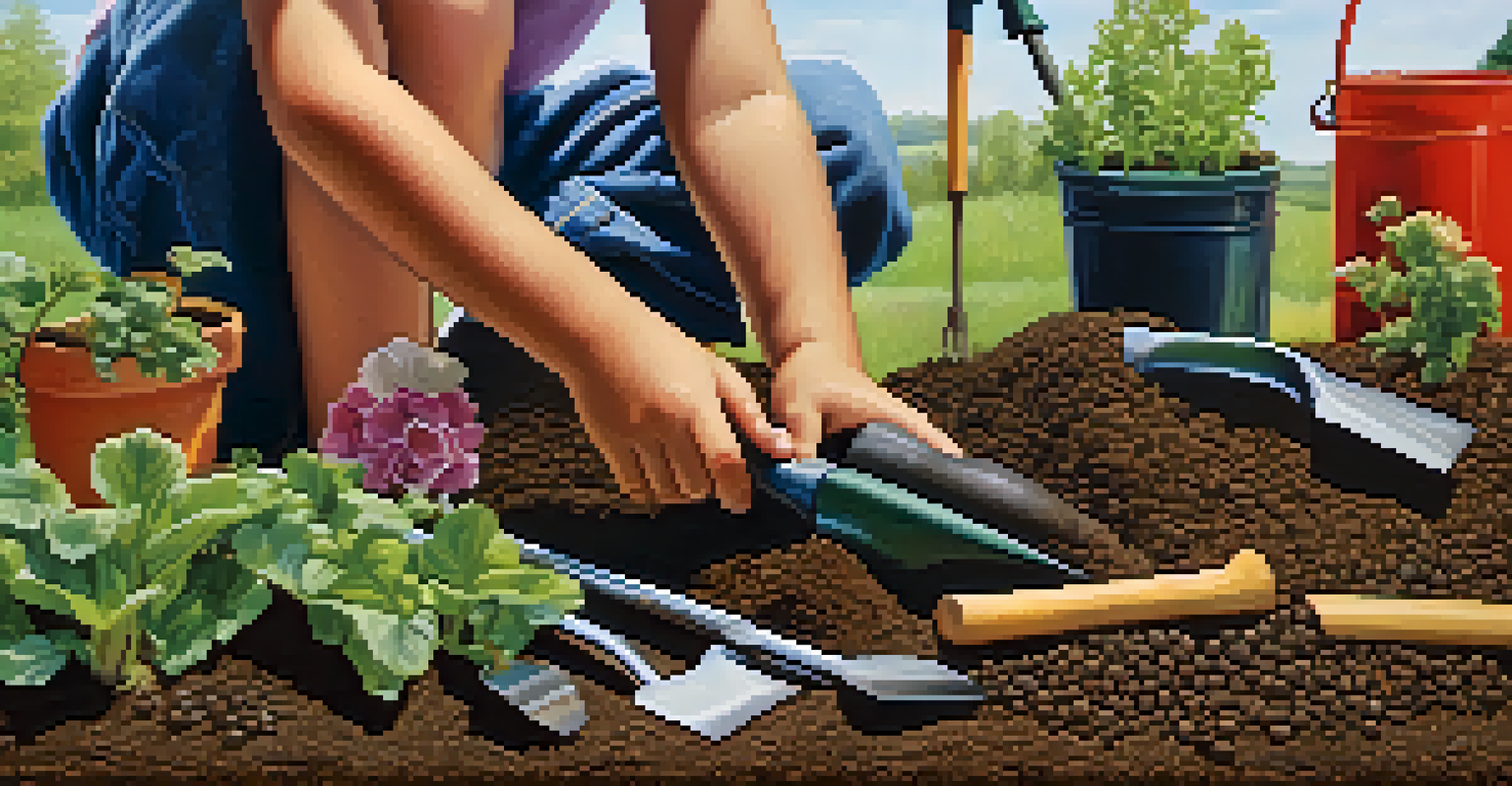Involving Kids in Gardening: Growing Raw Food Together

The Joy of Gardening: A Family Activity
Gardening is more than just planting seeds; it’s about creating lasting memories. Involving kids in gardening transforms it into a fun family activity where everyone can bond. Imagine your child’s excitement as they dig their hands into the soil, feeling connected to nature.
To plant a garden is to believe in tomorrow.
This hands-on approach not only makes gardening enjoyable but also teaches children valuable life skills. They learn responsibility as they care for their plants, and patience as they wait for their hard work to bear fruit. Plus, nothing beats the thrill of harvesting together after months of care!
By gardening together, families can create a nurturing environment filled with laughter and learning. It’s a delightful way to break away from screens and enjoy the outdoors while fostering a love for nature and healthy eating.
Choosing the Right Plants for Kids
When starting a garden with kids, choosing the right plants is key to keeping their interest alive. Opt for fast-growing plants like radishes or sunflowers, which offer quick rewards and instant gratification. This will keep them engaged and excited about the gardening process.

Consider selecting plants that are visually appealing and easy to handle. Colorful flowers, vibrant veggies, and even herbs like basil and mint can captivate children's attention. Plus, these choices often have wonderful scents and textures, making the experience even more sensory.
Gardening Builds Family Bonds
Involving kids in gardening creates a fun, interactive way for families to connect and make lasting memories.
Engaging kids in the selection process can also spark their curiosity and creativity. Let them choose their favorite colors or scents, turning gardening into a fun adventure where their preferences shape the garden’s outcome.
Teaching Kids About Soil and Sustainability
Gardening provides a fantastic opportunity to teach children about soil and its importance for plant growth. Explain how soil is a living ecosystem filled with nutrients that support life. Getting your hands dirty helps kids understand the concept of sustainability and the cycle of life.
Gardening adds years to your life and life to your years.
You can make this lesson interactive by creating a mini-experiment. For instance, compare different soil types and their effects on plant growth. This hands-on activity will not only make learning fun but also instill a sense of responsibility for caring for the earth.
By understanding the role of soil, kids can appreciate the work that goes into growing food. This knowledge fosters a deeper respect for nature and encourages them to think about sustainable practices in their daily lives.
The Nutritional Benefits of Growing Your Own Food
Growing your own vegetables and fruits teaches kids about nutrition in a practical way. When children see the fruits of their labor, they're more likely to try new foods, especially those they’ve grown themselves. It’s amazing how a child’s willingness to eat veggies increases when they’ve planted and nurtured them!
Explain the health benefits of fresh produce, like vitamins and minerals, in a relatable way. For example, you can talk about how carrots help improve their eyesight or how spinach gives them strong muscles, making the connection between gardening and their own health.
Hands-On Learning About Nature
Gardening teaches children valuable lessons about soil, sustainability, and the environment through engaging, hands-on experiences.
Encouraging kids to enjoy raw foods also promotes healthy eating habits for life. By being involved in the gardening process, they learn to appreciate the taste of fresh produce and the effort it takes to grow it.
Fun Gardening Activities for Kids
Incorporating fun activities into gardening can make the experience even more enjoyable. Try creating garden art, such as painted rocks or colorful garden stakes, to personalize their space. This allows kids to express their creativity and feel a sense of ownership over the garden.
Another great activity is setting up a scavenger hunt. Kids can search for specific plants, insects, or garden tools, making the time spent in the garden exciting and adventurous. This fun twist keeps them engaged and eager to learn more about their surroundings.
You can also incorporate games that teach gardening concepts, like matching plants to their seeds or identifying healthy vs. unhealthy plants. These activities turn learning into play, ensuring that kids remain interested and invested in their gardening journey.
Encouraging Responsibility Through Gardening
Gardening is an excellent way to teach kids about responsibility. Assign specific tasks, like watering plants or weeding, to help them understand the commitment involved in caring for living things. This sense of duty can translate to other areas of their lives, fostering a strong work ethic.
Make it a routine: create a gardening schedule that allows them to see the fruits of their labor over time. Regularly checking on their plants will help instill a sense of responsibility and pride in their work. Celebrate small victories together, reinforcing the importance of consistent efforts.
Promoting Healthy Eating Habits
Growing their own fruits and vegetables encourages kids to appreciate fresh produce and fosters lifelong healthy eating habits.
By nurturing the garden, kids learn that the rewards come from dedication and hard work. This understanding can shape their attitudes toward responsibilities in school and home life, making them more accountable individuals.
Connecting with Nature and Each Other
Gardening is a wonderful way to connect with nature, and involving kids amplifies that connection. As they plant seeds, watch them sprout, and eventually harvest the fruits, they develop a deeper appreciation for the environment. This connection can foster a lifelong love for nature and outdoor activities.
Sharing stories and experiences during gardening time can strengthen family bonds. Use this time to talk about the day, share a funny memory, or simply enjoy the silence of nature together. These moments can lead to meaningful conversations and create lasting memories.

Encouraging kids to observe wildlife in the garden, like butterflies or bees, can also enhance their respect for nature. This awareness helps them understand the ecosystem and their role in it, making gardening a holistic learning experience.